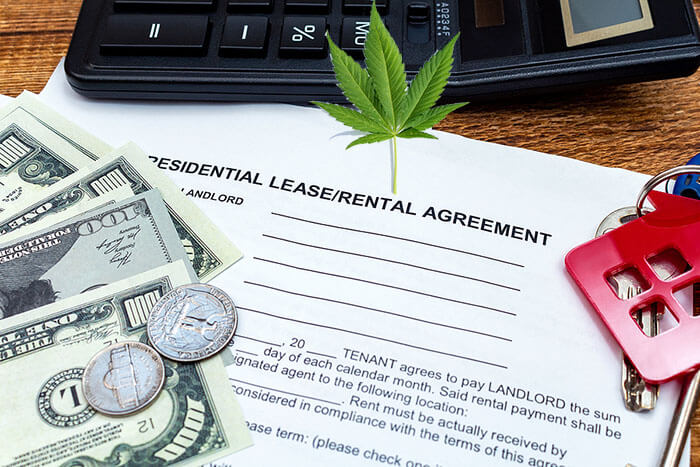As a property owner considering leasing to cannabis users or growers, your lease agreement must cover cannabis cultivation, use, and distribution. Loosely worded clauses, or no clauses at all, can work against you if you’re accused of harboring illegal cannabis growers. You could face high penalties to fight off in costly cannabis appeals.
Below are three ways to protect yourself from legal problems. A cannabis lawyer can further help make your lease agreement airtight.
1. Require the tenant to follow all legal and local laws
Federal law makes any use of cannabis illegal, regardless of state law. The Crack House Statute also makes it a felony to lease or use any place for the cultivation, distribution, or use of cannabis. This makes it impossible to require abidance of all laws. Instead, require that tenants follow all state and local laws and non-conflicting federal laws. This lets you cover all possible bases.
2. Be specific about what’s permitted
List out the specific uses of cannabis that are permitted, such as legal recreational use, medicinal use, and the maximum amount of plants allowed to be grown (e.g. five or less in Sacramento county and city). All activities should abide by state and local laws.
If your property is in Sacramento county, be especially vigilant about cannabis cultivation. A widely disputed ordinance penalizes property owners even if they didn’t know their tenants were cultivating illegal cannabis. For reassurance that they’re not going over the limit, don’t lease to cannabis businesses. Instead, stick to recreational or medicinal users.
3. Include legal owner checks
If you know your tenant will grow cannabis and want to routinely inspect their growing space, you have to navigate a tricky legal situation. State laws can severely restrict your access of occupied rental property, and you don’t want to invade your tenant’s privacy.
In California, your visits are restricted to emergencies, repairs (during normal business hours of 8AM-5PM), and after the tenant abandons the property. If visiting the property when the tenant is away, you must give a written notice at least 24 hours in advance. Check your state and local laws about owner checks, or defer to a cannabis lawyer for advice.
Stay updated on your tenant’s use of cannabis
In some areas, penalties for illegal cannabis activity can be markedly harsher toward property owners than the actual tenants who violate the law. For example, Sacramento county gives out penalties for illegal cannabis growth that average in the six-figure range. Keep an eye on your tenants to make sure they don’t sneak illegal cannabis growths past you.
The best way to reduce your chances of penalties and other legal troubles is to work with a lawyer experienced in cannabis law. They’ll help you create a seamless lease agreement.


 How to Improve Your Broker Dealer Audit Experience
How to Improve Your Broker Dealer Audit Experience